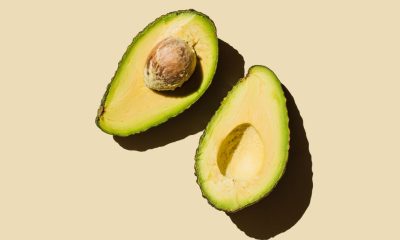Videos
What Is Coconut Kefir, and Can It Really Do Anything for Your Gut Health?

Aside from probiotics, there’s also a lot of other good stuff in the fermented beverage. Both versions made from coconut milk and coconut water offer not-so-small amounts of potassium, a key electrolyte that supports hydration, as well as varying amounts of B vitamins, which help the enzymes in your body more efficiently transport energy and oxygen.
Because the base in coconut kefir is different from the original drink, there are some nutritional differences you might want to be aware of. For one, thanks to the milk, regular dairy kefir can be a good source of protein and calcium. For instance, whole milk kefir has 10 g of protein and 390 mg of calcium in a one cup serving, while coconut milk kefir comes in at only 2 g and 92 mg. On the flip side, the original stuff has less potassium, since it skips on that coconut base.
Can coconut kefir really boost your gut health?
It’s tricky, since the research on probiotics in general isn’t exactly clear-cut. While what we have does show some promise, Harbstreet says it’s too early to tell for sure whether or not it truly is all it’s cracked up to be—and the same applies for kefir and its coconut cousin.
“This is a rapidly expanding niche in the wellness market and the research hasn’t kept pace with the development of new products or claims,” she says.
Here’s the thinking: Your gut contains trillions of microbes that coexist in a network called the gut microbiome. It’s a delicate balance and, when it’s functioning as it should, it helps both your digestive and immune systems operate at their best. When the balance is disrupted, these same systems can get all out of whack. So the hypothesis is, adding back some of those beneficial bacteria via probiotics can restore it to normal.
Current evidence on probiotics shows some promising results for folks with specific GI conditions, like people with irritable bowel syndrome (IBS), inflammatory bowel disease (IBD), or anyone simply trying to recover after a bad bout of diarrhea. And the research on dairy-based kefir follows in line with that.
Problem is, a lot of the science is based around probiotic supplements rather than actual food sources, which have much larger concentrations of bacteria than something you’d eat or drink. What’s more, not all probiotics contain the same exact kinds, quantities, or mixes of the good bugs, which all factor into how they do or don’t benefit the body. For instance, certain strains may be helpful, but only if they’re paired and taken with other ones too.
So regarding coconut kefir, there simply isn’t enough research to draw firm conclusions about what it can or cannot do, says Geiger. Until we have more specific research showing the direct effects of drinking it, we can’t really say for sure whether it’s helpful or not. But because research hasn’t shown any negative effects of doing so, there’s likely no harm in trying it in the meantime.
So should you add coconut kefir to your shopping list?
Sure, if you want to give it a try—say, you like the original stuff but want to test out something a little different, or you’re trying to be more plant-based. Just don’t go into it expecting that it’ll be the cure for whatever might be ailing your gut.
In fact, while it could help soothe your stomach, if you start gunning a whole lot at once, it might actually have the opposite effect, Harbstreet says. Nothing serious, though. You might notice a little more farting or pooping, since adding anything new to your diet in large quantities—and especially bacteria-rich food and drinks—can cause upset, she says. Aiming to incorporate probiotics gradually should lessen those side effects.
Similarly, those with more serious conditions like Crohn’s and irritable bowel disease should always talk with their doctor before throwing a glass of coconut kefir back, since the specifics of their condition may not react well with probiotics, or there could be a better, more proven treatment worth trying, for which a licensed medical professional will be best able to guide you.
“But, for most people, there’s little risk or danger to adding it as an option among other beverages if you enjoy the flavor,” Harbstreet says.
Related:
Source: Self

-

 Politics4 days ago
Politics4 days agoLatest news on the 2024 election: Biden fundraising in San Francisco and Seattle regions
-

 News4 days ago
News4 days ago£132,000 farmhouse on the brink of 150ft cliff starts demolition as owner evacuated – neighbor vows to stay until his death.
-

 Tech4 days ago
Tech4 days agoHere's an In-Depth Look at How Cadillac Made it to Le Mans In 2023
-

 Uncategorized4 days ago
Uncategorized4 days agoThe Washington Post – Breaking news and latest headlines, U.S. news, world news, and video
-

 Lifestyle4 days ago
Lifestyle4 days agoSelena Gomez shares adorable photo with Benny Blanco amidst Justin Bieber baby news
-

 News4 days ago
News4 days ago16-year-old accused of defacing World War I statue in New York City
-

 News3 days ago
News3 days agoBritish family left ‘terrified’ after being surrounded by a shark at a Spanish beach – as 27-year-old mother recounts how the predator ‘zig-zagged’ in the water and pursued her father
-

 News4 days ago
News4 days agoNew Jersey Jackals and New York Boulders set to play at Hinchliffe Stadium














